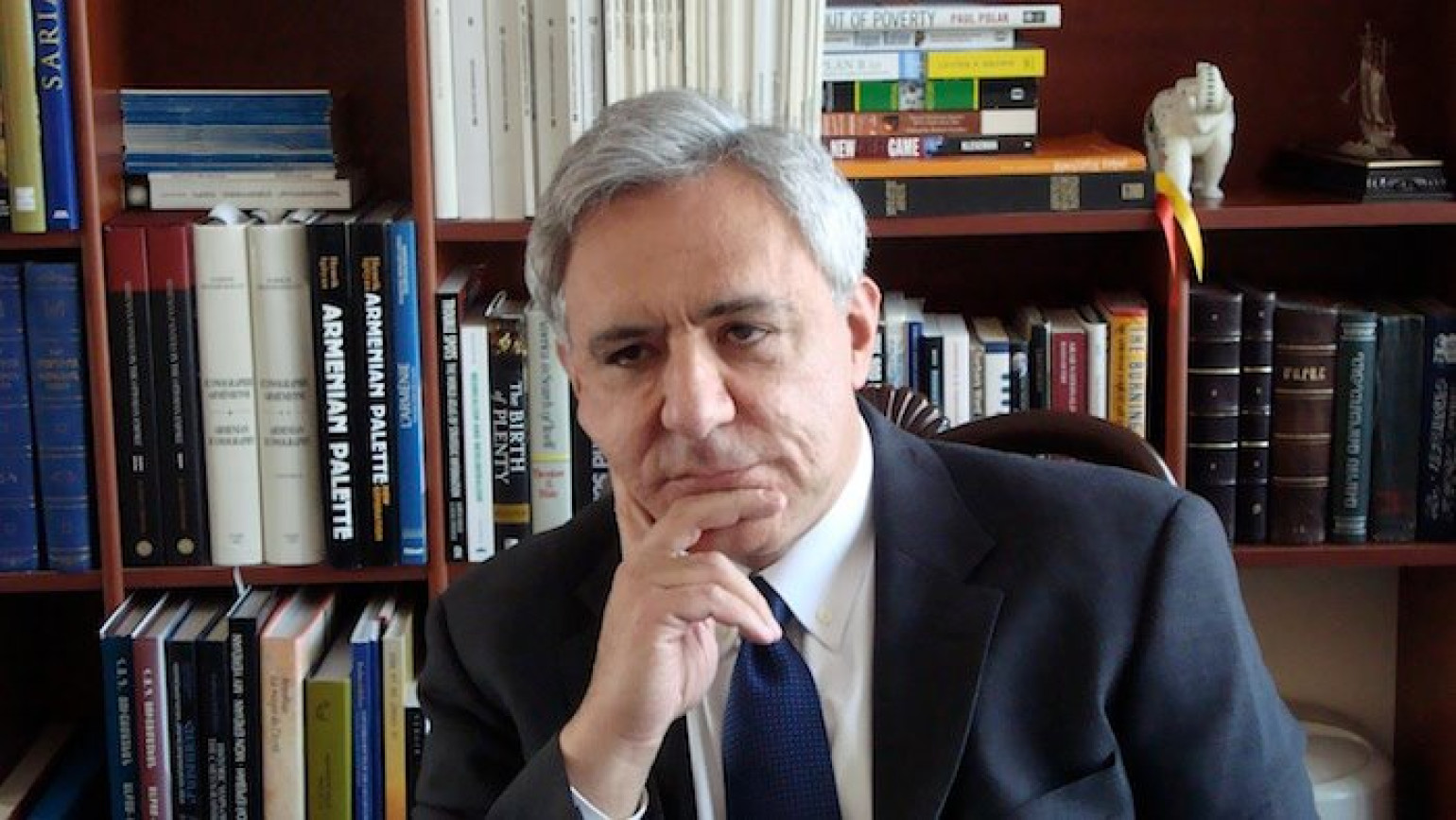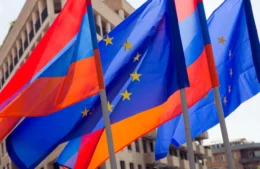Pashinyan’s leadership: a catalyst for Armenia’s decline. Vardan Oskanyan
- (0)

Former Foreign Minister of Armenia, coordinator of the Committee on Artsakh Affairs, Vardan Oskanyan published an article entitled “Pashinyan’s leadership: the catalyst of Armenia’s decline”,
Op-ed by Vartan Oskanian, Armenia’s former foreign minister (1998-2008)
As 2025 unfolds, Armenia finds itself at a critical crossroads, grappling with profound foreign policy challenges and existential questions about its future. The nation is trapped in a stark duality: mounting external threats from Azerbaijan and an internal paralysis marked by complacency, an alarming lack of vision, and a dangerously passive posture. This convergence of external and internal crises underscores the urgent need for clarity, strategy, and courageous leadership to steer the country out of its current quagmire.
Azerbaijan casts a long shadow over Armenia’s foreign policy. The 2020 military defeat in the Nagorno-Karabakh war and Azerbaijan’s complete seizure of the region in 2023 have reshaped the power dynamics in the South Caucasus. Leveraging diplomatic maneuvers and economic influence, Baku has successfully amplified a narrative painting Armenia as a regional threat, aggressor, and even a “fascist state.” Disturbingly, Armenia’s leadership has failed to counter this portrayal effectively, even as Azerbaijan commits egregious actions: the occupation and ethnic cleansing of Nagorno-Karabakh, territorial incursions into Armenia proper, hostage-taking of Armenian citizens, and the destruction of Armenian cultural heritage.
Azerbaijan’s demands further expose Armenia’s vulnerabilities and its adversary’s expansive ambitions. These demands include the disarmament of Armenia’s military, the resettlement of 300,000 Azerbaijanis in Armenia, the establishment of a corridor linking Azerbaijan to its Nakhchivan exclave, the dismantling of the Minsk Group, and even constitutional changes in Armenia, to name a few. Such conditions pose existential threats to Armenia’s sovereignty and identity—yet the Armenian government has offered little in terms of a coherent strategy to resist or respond.
This resignation to Azerbaijan’s pressures reflects a broader failure within Armenia’s governance: a lack of foresight, an inability to anticipate Azerbaijan’s moves, and a disturbing incapacity to build meaningful alliances or inspire national confidence. The disarray in Armenia’s foreign policy is unprecedented.
Pashinyan’s foreign policy initiatives have been more about political theater than substance, aimed at distracting and manipulating the public with false hope and unrealistic expectations. For instance, the government’s approval today of a draft law initiating Armenia’s EU membership process is entirely detached from the EU’s actual agenda. Similarly, the recent announcement of an impending “strategic cooperation” agreement with the United States has been undermined by the U.S. State Department’s apparent ignorance of such developments. Pashinyan’s portrayal of Armenia as a “crossroads of peace” also rings hollow; regional communication corridors have already been planned and finalized—bypassing Armenia entirely.
Armenia’s foreign policy challenges can be categorized into three distinct layers. The first is internal dysfunction, epitomized by Pashinyan’s administration, which has presided over significant losses, strained alliances, and a diminished international standing. The second is the direct threat posed by Azerbaijan, emboldened by its unchecked successes. The third is the complex interplay of regional and global dynamics, requiring resilience and adaptability—traits glaringly absent in the current leadership.
A particularly glaring failure of Pashinyan’s tenure has been his inability to influence, let alone dictate, the agenda in Armenia’s favor during critical negotiations. While no leader is expected to unilaterally control discussions, the complete absence of efforts to shape the narrative reveals a troubling lack of competence and strategic vision. Since the end of the 44-day war, Armenia has remained on the defensive, reacting to events rather than proactively defining its priorities. Discussions on Nagorno-Karabakh, territorial integrity, border demarcation, and security guarantees have been overwhelmingly skewed against Armenian interests, leaving the nation with little room to maneuver.
There was a time when Armenia’s diplomacy commanded respect and delivered tangible results. Allies stood firm in their support, and even adversaries acknowledged Armenia’s standing. Today, that era feels like a distant memory. The country’s foreign policy now resembles a rudderless ship caught in a storm, adrift amid conflicting interests and shifting allegiances, with a leadership paralyzed by indecision. This incompetence has led to Armenia’s diminished standing, leaving it vulnerable to a relentless cycle of crises that the current administration seems incapable of addressing.
Compounding this grim picture is the erosion of trust in Armenia’s leadership among key global and regional actors. Russia and Iran harbor deep skepticism toward Pashinyan, Turkey remains skeptical and Azerbaijan openly antagonistic, and even the West’s engagement appears transactional rather than genuine.
What Armenia needs above all is prudent, competent, courageous, and rational leadership. The current administration has proven itself incapable of meeting these demands. The nation must shed its paralysis and move beyond the perpetual fear of war. Armenia’s guiding principle must be its national interest—defined not by surrender but by strategic adjustment. International politics, after all, is about reconciling conflicting interests through diplomacy, not a zero-sum game of inevitable compromise or war.
Armenia must recalibrate its geopolitical strategy, renewing alliances based on new understandings while expanding partnerships with global power centers. This approach requires a delicate balance between adapting to new regional realities and preserving Armenia’s fundamental rights, identity, and statehood. Such a strategy is not merely about survival—it is about reclaiming agency and shaping Armenia’s future.


















